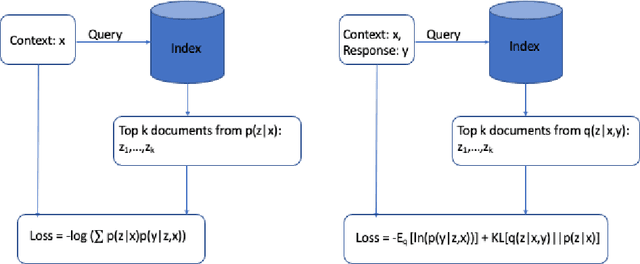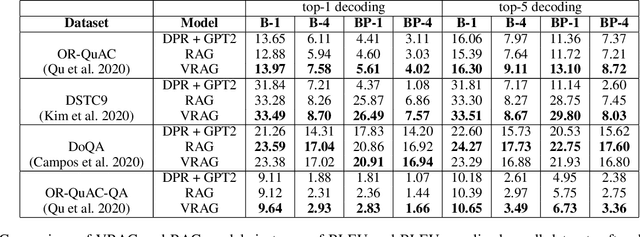Variational Learning for Unsupervised Knowledge Grounded Dialogs
Paper and Code
Dec 06, 2021



Recent methods for knowledge grounded dialogs generate responses by incorporating information from an external textual document. These methods do not require the exact document to be known during training and rely on the use of a retrieval system to fetch relevant documents from a large index. The documents used to generate the responses are modeled as latent variables whose prior probabilities need to be estimated. Models such as RAG , marginalize the document probabilities over the documents retrieved from the index to define the log likelihood loss function which is optimized end-to-end. In this paper, we develop a variational approach to the above technique wherein, we instead maximize the Evidence Lower bound (ELBO). Using a collection of three publicly available open-conversation datasets, we demonstrate how the posterior distribution, that has information from the ground-truth response, allows for a better approximation of the objective function during training. To overcome the challenges associated with sampling over a large knowledge collection, we develop an efficient approach to approximate the ELBO. To the best of our knowledge we are the first to apply variational training for open-scale unsupervised knowledge grounded dialog systems.
 Add to Chrome
Add to Chrome Add to Firefox
Add to Firefox Add to Edge
Add to Edge